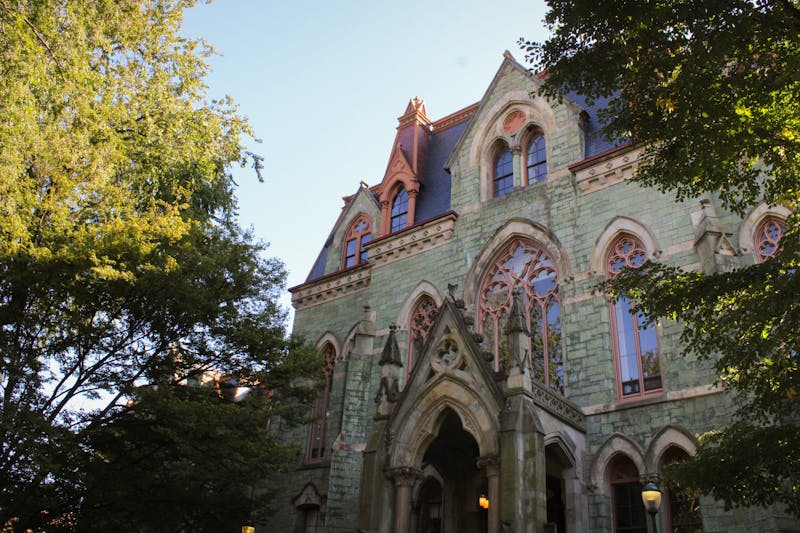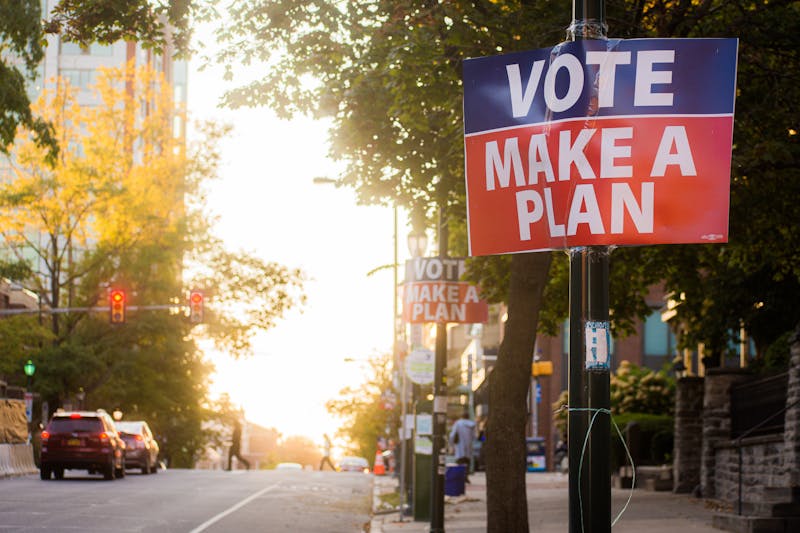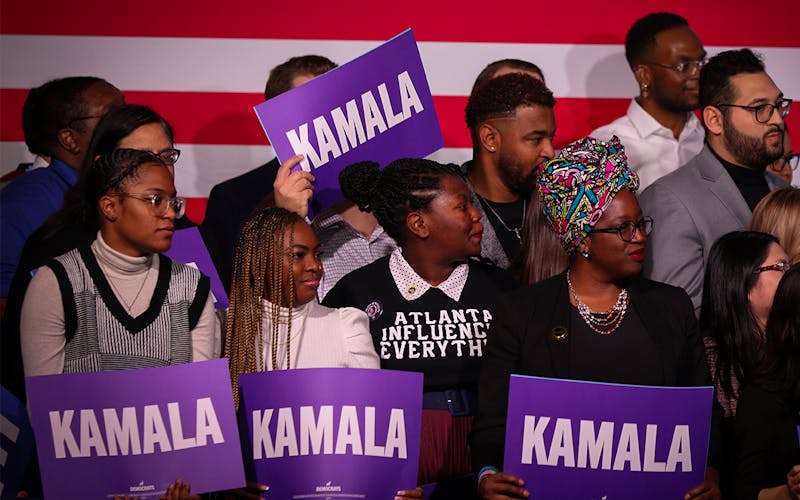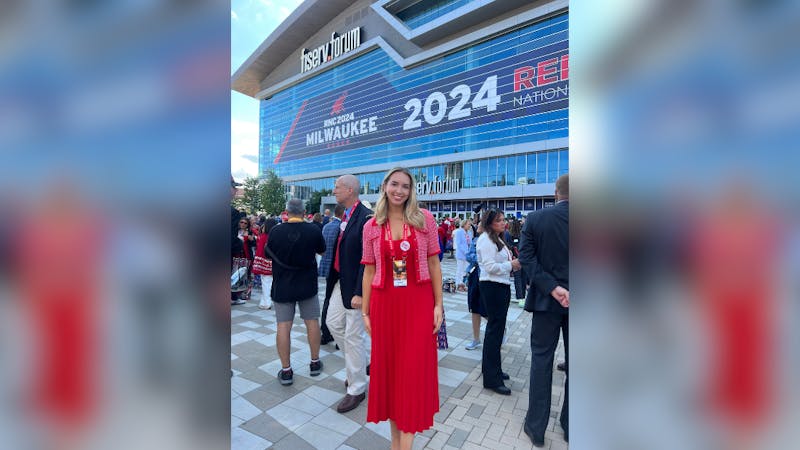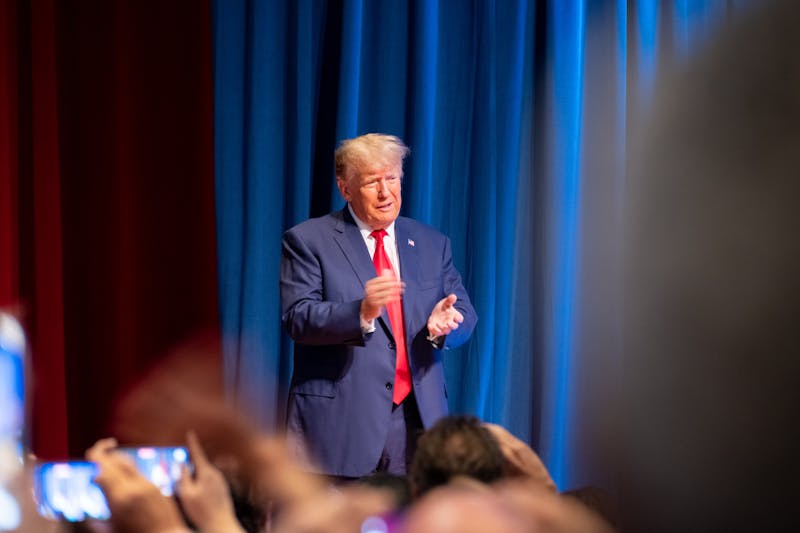
How do campaign and communications strategies play out in a presidential election? How can journalists objectively cover a presidential campaign? Is the future of democracy at risk? The following Penn classes attempt to offer some insights.
Here is how Penn is approaching teaching about the 2024 presidential election.
COMM 4280: “Conventions, Debates, and Campaigns”
This class, only offered by the Annenberg School for Communication every four years, focuses primarily on the national conventions organized by both major parties, and subsequent post-convention campaigns leading up to Election Day.
COMM 4280 investigates how political parties share their efforts between persuading and educating the electorate about their agendas, and mobilizing members of their own party. It both examines the roles which political parties play in American life and how nongovernmental organizations can cooperate with parties to reach common goals.
“The class is an amazing opportunity to watch not only how campaign and communications strategies play out, but also, in a broader sense, how history is being made,” College senior Carla Agostini, a current student in the class, said.
Agostini said that she would recommend the class to anyone who is interested in politics, marketing, and journalism, as campaigns involve all of these fields. Enrollment in this class is limited to students considering and having declared a communication major, and therefore requires an application to enroll.
This fall, the course is jointly taught by Annenberg School for Communication professor David Eisenhower — the grandson of former President Dwight Eisenhower and the son-in-law of former President Richard Nixon — Political Science professor Michele Margolis, and Annenberg lecturer Craig Snyder, a former United States Senate chief of staff and Republican nominee for Congress.
ENGL 3421: “Political Journalism: The Presidential Election”
This journalism class, offered by the English department, teaches students how to write objective and critical stories in “an era when even the very definition of truth is widely under assault,” according to the course description.
The class is taught by Richard Polman, Penn’s Maury Povich writer-in-residence and daily blogger for The Philadelphia Inquirer. Students get a feel of what life in the newsroom or working for a political publication is like with weekly assignments and writing exercises.
“This presidential election will be one of the most consequential in our history,” Polman wrote in a statement to The Daily Pennsylvanian. “I'm inviting my course students to follow it closely and write about every twist and turn in the campaign.”
The class is largely conducted in a workshop-style format, where students read each other’s work and provide constructive feedback as a group. It is suitable for “‘junkies’ of national politics,” or those who simply like to read the news closely and aspire to write about it, according to the course description.
“The goal is to basically feed off the news as it happens, and to come to appreciate how challenging it really is for journalists to analyze and opinionize — especially because readers today are so polarized and committed to their partisan siloes,” Polman wrote.
ENGL 3421 counts towards the journalistic writing minor, but is open to any students of any major.
PSCI 0010: “Decision 2024: Following and Understanding the Presidential Election”
This first-year seminar serves as an introduction to elections, voting behavior, and political polling. It discusses topics such as electoral integrity, media coverage, and threats to democracy. The goal of the seminar is for students to understand the election’s implications on American democracy.
“Taking a class that is about the presidential election as the campaign unfolds in real time is one of those opportunities for students to learn, grow, and explore,” Political Science professor Michele Margolis, who teaches the course, wrote in a statement to the DP. “The goal is for students to be able to apply political science theories and findings to the unfolding election in real time and to develop a nuanced understanding of the 2024 election and its implications for American democracy.”
A second first-year seminar, with the same course code, is called “Democratic Erosion, Racial Threat and Studying the 2024 Presidential Election.” Similarly, this course focuses on the recent loss of public faith in the process of democracy and how it can be restored. It explores democratic erosion and how it can be contextualized in a bigger picture of American history.
PSCI 1202: “Changing American Electorate”
This political science course focuses on the transformation that has occurred in the American political landscape in recent decades. It explores how American political attitudes and landscapes have changed, and how the fortunes and strategies of the two major parties have been transformed. It also examines potential causes of this transformation, including the economy, suburbanization, race, religion, and immigration.
The course is open to all students, and not restricted to a specific major or school.
The Daily Pennsylvanian is an independent, student-run newspaper. Please consider making a donation to support the coverage that shapes the University. Your generosity ensures a future of strong journalism at Penn.
Donate




